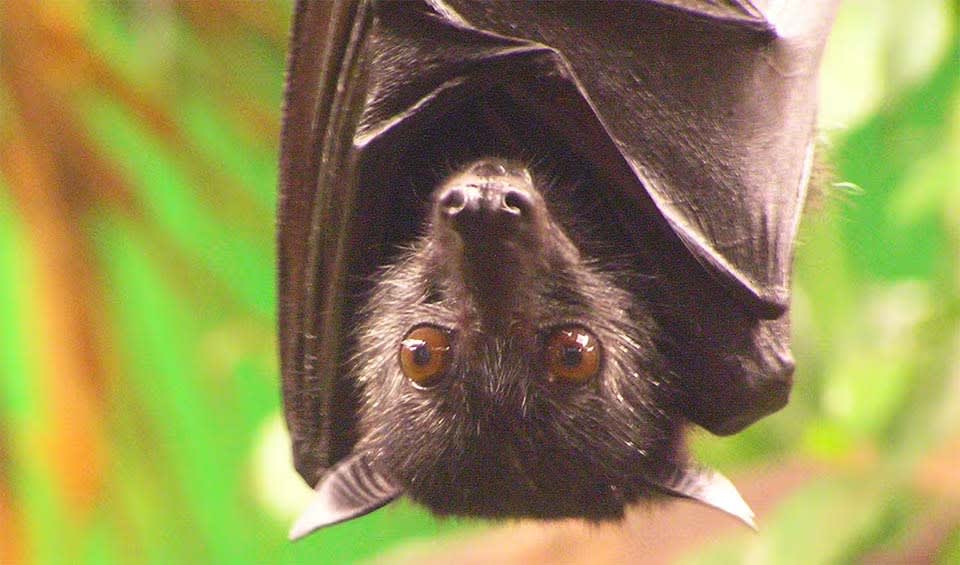A large, captivating species of fruit bat native exclusively to the island of Pemba, part of the Zanzibar archipelago off the coast of Tanzania. This species stands out due to its impressive size, striking appearance, and ecological importance, making it one of the most intriguing bats in the world.
One of the Pemba flying fox’s most notable characteristics is its considerable wingspan, which can reach up to 1.6 meters (over 5 feet), making it one of the largest bats in existence. Its fur is beautifully colored, typically a deep red or orange around the head and neck, which fades into a darker brown or black across the back and wings. The face resembles that of a fox, with large, bright eyes and a pointed snout, which contributes to their common name and gives them a distinctly canine appearance.
The Pemba flying fox is an arboreal species, meaning it lives predominantly in trees. It is primarily frugivorous, feeding on a variety of fruits found in its forest habitat. It plays a critical role in its ecosystem as a seed disperser; as it consumes fruits, it helps in the germination and spread of many tree species by excreting the seeds across different areas of the island. This ecological role is vital for the maintenance and regeneration of the island’s forests.
These bats are sociable creatures, often found roosting in large colonies in the treetops. During the day, groups of Pemba flying foxes can be seen hanging upside down from branches, wrapped in their large wings, which they use like cloaks to cover themselves. This social behavior is crucial for their survival, providing safety in numbers from potential predators and facilitating the sharing of information about food sources.
Distribution
 Tanzania
Tanzania Official estimate
Official estimate
Anything we've missed?
Help us improve this page by suggesting edits. Glory never dies!
Suggest an editGet to know me
Terrestrial / Aquatic
Altricial / Precocial
Polygamous / Monogamous
Dimorphic (size) / Monomorphic
Active: Diurnal / Nocturnal
Social behavior: Solitary / Pack / Colony
Diet: Carnivore / Frugivore/ Omnivore / Piscivorous / Insectivore
Migratory: Yes / No
Domesticated: Yes / No
Dangerous: Yes / No




